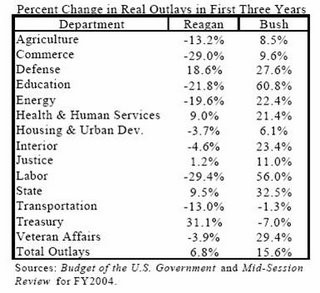What you do for a living isn't who you are. Making more money than another person doesn't make you automatically better than the other person. If you live in a big house, good for you. If you drive a big car, good for you. I'm glad for your success. But the fact that something isn't large or expensive or flashy doesn't mean that it isn't important.Good point. I'm going to bypass the topic of if someone can have too much material possessions, but I wanted to focus on the occupational aspect.
Many are well aware of the perception that occupations that make more money are always better than low-paying occupations. I do think there is virtue in gaining skills for the workforce, so that one is more valuable to the employer, but some people go to the workforce immediately after high school, and I know each person is different. I, for one, do not have good manual labor skills, so I could not go the Vo-Tech route, nor am I a genius like Bill Gates, who didn't have to go to college.
Anyway, back to my main point, I have seen this bias. But I have seen another scale, almost a reverse of the financial prestige scale. I saw this some when I was in college, and I will call it a scale of "nobility." The idea is that some occupations are more noble than others. Typically, majors in the liberal arts were considered "nobel", but majors such as engineering or business were less noble. The idea was that people who just cared about making money would go into business or engineering. People who cared about higher, transcendent things would go into the liberal arts. The deep, caring people would be a teacher or English professor; the greedy would be an accountant.
Now, this was hardly typical, and this is not an indictment of liberal arts majors. And I know that there was plenty in reverse, where business/engineering did not think you contributed something unless it was to the Gross Domestic Product.
Now, is there truth to either of these viewpoints? I think ultimately, a person has to do what they want to do, and what they believe God has called them to do. I think in many instances, these things are one and the same. Now, don't get me wrong; many times God will call upon us to do things that make us uncomfortable, things we do not want to do. At the same time, I believe God gives us a passion for certain things, which is usually related to our occupation and/or something else that composes a significant part of our life.
My wife switched from a chemical engineering major to zoology, eventually getting her degree in the latter. Zoology is not nearly as high-demand as chemical engineering, but she felt miserable in engineering, and she had a passion for animals and nature. She made the switch and she was much happier, and I am glad she did.
As for me, I was at a crossroads my sophomore year in deciding what to do. I was a math tutor at the time, so the idea of being a math teacher appealed to me. At the same time, I had a passion for the physical sciences, so mechanical engineering appealed to me. This was troubling, however. I liked the idea of being a math teacher because it meant I was in an occupation where I helped people. I felt at the time that simply being an engineer meant I would not do anything for anyone, other than help someone make money.
Ultimately, I had to go with engineering. I just felt like being a math teacher was not for me. It's hard to explain, but I just did not feel like it was my calling, at least not then. I would have gladly pursued that occupation, had it felt right. So here I am, as an engineer. And I don't think there is anything wrong with that. I feel like God gave me a passion for such a job, and even though I may not understand his plans, he wants me to be where I am.
I do not really feel this way now, where some jobs are better than others because of its altruistic implications. Part of my thought process then had to do with outside influences. I realize that ultimately, people have to pursue a career choice that makes them happy. I am not saying life's ultimate goal is self-actualization, but one should pursue a field where they are happy if it is possible. Some jobs appear to be more altruistic, or more noble than others. And others seem to be more important because they make more money. But God has different callings for each of us. Some will make a decent amount of money, some not. God can use us no matter what we do for a living.
